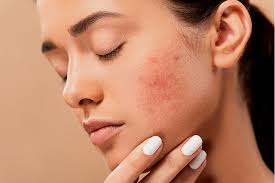Contents
ozeku.com – Acne is one of the most common skin conditions affecting people of all ages, particularly teenagers and young adults. It can lead to significant emotional distress and impact self-esteem. Fortunately, various strategies can help manage and prevent acne effectively. This article explores some of the best tips for treating and preventing acne, focusing on lifestyle changes, skincare routines, and medical treatments.
Read More: Game Vector: Menggugah Adrenalin dalam Dunia Parkour Digital
Understanding Acne
Before diving into treatment and prevention strategies, it’s essential to understand what acne is. Acne occurs when hair follicles become clogged with oil, dead skin cells, and bacteria. It can manifest as:
- Comedones: Open (blackheads) and closed (whiteheads) clogged pores.
- Papules: Small, red, inflamed bumps.
- Pustules: Inflamed lesions filled with pus.
- Nodules: Large, painful lumps beneath the skin.
- Cysts: Deep, pus-filled lesions that can cause scarring.
Acne can be triggered by various factors, including hormonal changes, diet, stress, and certain medications. Understanding your acne triggers can help in choosing the right treatment and prevention strategies.
Read More: Epic Seven: Memahami Dunia RPG yang Memikat
Skincare Routine for Acne-Prone Skin

1. Cleanse Your Skin
One of the most important steps in treating acne is maintaining a proper skincare routine, starting with cleansing. Use a gentle, non-comedogenic cleanser that removes excess oil and dirt without stripping the skin of its natural moisture. Cleansing twice a day, in the morning and evening, can help keep your skin clear.
2. Exfoliate Regularly
Exfoliation helps remove dead skin cells that can clog pores and contribute to acne. Choose a chemical exfoliant containing salicylic acid or glycolic acid, as these ingredients can penetrate the pores and dissolve excess oil. Limit exfoliation to 2-3 times a week to avoid irritation.
3. Use Non-Comedogenic Products
When selecting skincare and makeup products, look for labels that indicate they are non-comedogenic. These products are formulated not to clog pores, reducing the risk of breakouts. Avoid heavy creams and oils that can exacerbate acne.
4. Moisturize
Even acne-prone skin needs hydration. Use a lightweight, oil-free moisturizer to keep the skin hydrated without adding excess oil. Ingredients like hyaluronic acid can provide hydration without clogging pores.
5. Apply Sunscreen
Sunscreen is crucial in any skincare routine, especially for acne-prone skin. Choose a broad-spectrum sunscreen labeled as non-comedogenic. Sun exposure can worsen acne and cause skin damage, so apply sunscreen daily, even on cloudy days.
Read More: Fallout: Menggali Dunia Pasca-Apokaliptik
Lifestyle Changes to Manage Acne
6. Maintain a Healthy Diet
Diet can significantly influence acne. Focus on a balanced diet rich in fruits, vegetables, whole grains, lean proteins, and healthy fats. Some studies suggest that high-glycemic foods (sugary and processed foods) and dairy products may exacerbate acne. Consider reducing your intake of these foods and observing how your skin responds.
7. Stay Hydrated
Drinking plenty of water is essential for maintaining healthy skin. Staying hydrated helps flush out toxins and keeps the skin supple. Aim for at least 8 cups of water a day, adjusting based on your activity level and climate.
8. Manage Stress
Stress can trigger hormonal fluctuations that lead to increased oil production and acne. Incorporate stress management techniques into your routine, such as meditation, yoga, exercise, or deep-breathing exercises. Finding healthy outlets for stress can significantly improve your skin’s condition.
9. Get Enough Sleep
Quality sleep is vital for overall health and skin repair. Aim for 7-9 hours of sleep each night to allow your skin to regenerate and heal. Lack of sleep can lead to increased stress levels and hormonal imbalances, both of which can worsen acne.
10. Avoid Touching Your Face
Touching your face can transfer bacteria, oil, and dirt from your hands to your skin, increasing the likelihood of breakouts. Try to minimize touching your face, and always wash your hands before applying skincare products or makeup.
Read More: Tower of God: Sebuah Petualangan Epik dalam Dunia Fantasi
Medical Treatments for Acne
If lifestyle changes and a proper skincare routine do not improve your acne, it may be time to consider medical treatments. Consult a dermatologist for personalized advice and treatment options, which may include:
11. Topical Treatments
Dermatologists often recommend topical treatments containing active ingredients such as:
- Benzoyl Peroxide: Kills acne-causing bacteria and reduces inflammation.
- Retinoids: Promote cell turnover and prevent clogged pores.
- Salicylic Acid: Helps exfoliate and unclog pores.
12. Oral Medications
For moderate to severe acne, oral medications may be necessary. Options include:
- Antibiotics: Reduce inflammation and bacteria.
- Hormonal Treatments: Birth control pills can help regulate hormones that trigger acne in women.
- Isotretinoin: A powerful medication used for severe cases of acne that don’t respond to other treatments.
13. Professional Treatments
In-office treatments can provide faster results for acne management, including:
- Chemical Peels: Exfoliate the skin and improve texture.
- Laser Therapy: Reduces inflammation and kills bacteria.
- Extraction: Removes comedones and cysts.
Conclusion
Managing and preventing acne requires a combination of a proper skincare routine, healthy lifestyle choices, and, when necessary, medical treatments. Each individual’s skin is unique, so finding the right approach may take time and patience. By following these tips and consulting with a dermatologist when needed, you can effectively manage acne and achieve clearer, healthier skin. Remember that consistency is key, and be kind to yourself during your skincare journey. With dedication and the right strategies, you can overcome acne and boost your confidence.




